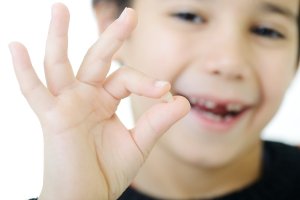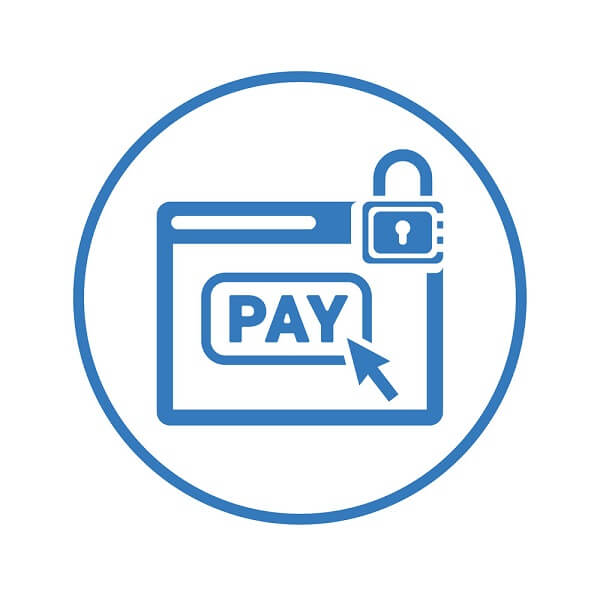-
What to Expect from Your Child’s Dental Visit
 You can schedule an appointment for your child with a family dentist in West County of St. Louis as soon as his or her first tooth begins to grow. Taking care of your child’s teeth and gums plays a crucial role in ensuring your child is off to a healthy start in life. If your child develops a dental disease that is left untreated, he or she can suffer serious oral health problems, including gum disease.
You can schedule an appointment for your child with a family dentist in West County of St. Louis as soon as his or her first tooth begins to grow. Taking care of your child’s teeth and gums plays a crucial role in ensuring your child is off to a healthy start in life. If your child develops a dental disease that is left untreated, he or she can suffer serious oral health problems, including gum disease.Daily brushing, good nutrition, and regular dental visits can all help prevent dental disease and cavities. Children learn healthy dental habits from their parents and caregivers, so it’s important to be a positive role model and continue to schedule your own appointments with the dentist. At your child’s first appointment, your family dentist will learn about your child’s health history and conduct a complete oral exam. This allows your dentist to check the growth and development and detect any oral health issues. Your dentist will also clean your child’s teeth and provide suggestions for daily dental care. He or she can also tell you if your child is getting enough fluoride.
-
Taking Care of Your Child’s Teeth
 As soon as your child begins getting his or her baby teeth, it’s time to talk to your dentist in West County of St. Louis about proper care. These first teeth may not be permanent, but they help hold the space for adult teeth, so it’s still important to protect your child against tooth decay and gum disease. If your child does develop tooth decay, he or she may experience pain, difficulty chewing, and embarrassment talking or smiling.
As soon as your child begins getting his or her baby teeth, it’s time to talk to your dentist in West County of St. Louis about proper care. These first teeth may not be permanent, but they help hold the space for adult teeth, so it’s still important to protect your child against tooth decay and gum disease. If your child does develop tooth decay, he or she may experience pain, difficulty chewing, and embarrassment talking or smiling.Start with the First Tooth
Unfortunately, tooth decay is incredibly common among children. The U.S. Department of Health and Human Services estimates around one in two children develop decay in their baby teeth. While consuming sugary foods and drinks increases a child’s risk of developing tooth decay, healthy habits like brushing and flossing can help prevent this common childhood disease. As a parent, you should start cleaning your child’s baby teeth with a cloth or soft children’s toothbrush as soon as they begin erupting. You should clean these baby teeth after feeding and right before bedtime.
Encourage Regular Brushing
At age two, you can begin brushing your child’s teeth with fluoride toothpaste. You can start using fluoride toothpaste even earlier if your dentist recommends it. By age four or five, your child can start brushing his or her own teeth. However, you need to watch your child to ensure he or she actually brushes all of the teeth. For safety reasons, you should also make sure your child spits the toothpaste out, as swallowing too much fluoride can lead to white spots in adult teeth. Dentists recommend you continue watching your child brush his or her teeth until the age of seven or eight.
Take Your Child to the Dentist
By age one, your child should have already had his or her first dental checkup. If your family dentist doesn’t take young patients, you can ask your pediatrician to recommend a dentist who is good with kids. Visiting the dentist can be scary for children, so you may want to sit in the chair first and ask the dentist if your child can sit on your lap during the checkup.
-
Tips for Coping with Dental Anxiety
 Varying levels of dental fear or anxiety are pretty common problems that keep far too many people from getting the oral care they need. If you struggle with these issues, keep reading to find out how sedation dentistry and other tactics can help you get past your doubts to get the care you need:
Varying levels of dental fear or anxiety are pretty common problems that keep far too many people from getting the oral care they need. If you struggle with these issues, keep reading to find out how sedation dentistry and other tactics can help you get past your doubts to get the care you need:Talk to Your Dentist
One of the most important things to do to quell your dental anxiety is to talk to your dentist. Be open about what scares you so he or she can make the necessary arrangements to make you as comfortable as possible in the office. If your dentist knows the root of your dental anxiety, he or she can make adjustments to give you what you need during your next visit.
Ask to See All of the Tools
A lot of people feel anxious at the dentist because they do not understand why all of the tools are used. If you fall into this category, you can ask the family dentist or the dental hygienist to talk to you about all of the tools and what they do. Once you understand their purpose, it helps you get past your dental anxiety and make it through your next appointment with ease.
Learn About Sedation Dentistry
If you have tried all of these other tactics and still feel really scared about going to do the dentist, you might want to ask about sedation dentistry. You can choose between various levels of sedation that help you relax enough to get the dental care you need. When you choose sedation dentistry in St. Louis, the dentist can give you nitrous oxide to make you feel calm but alert during the procedure. If you need something stronger, the dentist can do IV sedation, which is sent directly into your bloodstream to knock you out so you are completely unaware of the procedure. You can also opt for oral conscious sedation that is administered through oral medication.
-
Tips for Preventing Tooth Loss
 Tooth loss is a common problem seen by dentists, but it’s not unavoidable. There are many things you can do to prevent tooth loss and avoid the complications and inconveniences that come with it, such as needing dentures. Seeing your dentist serving St. Louis for regular check-ups is one of the most important things you can do to protect your teeth. These tips will also help.
Tooth loss is a common problem seen by dentists, but it’s not unavoidable. There are many things you can do to prevent tooth loss and avoid the complications and inconveniences that come with it, such as needing dentures. Seeing your dentist serving St. Louis for regular check-ups is one of the most important things you can do to protect your teeth. These tips will also help.Start by sticking to a good oral hygiene routine every day. Brush your teeth at least twice and floss at least once daily. Talk to your dentist about using a rinse that can further protect your teeth, such as one that discourages gum disease. Avoid using your teeth to cut or tear non-food items or to open things like twist caps. Talk to your dentist if you have a chronic condition that could impact your oral health, like diabetes or hypertension, to find out if you need to have more regular cleanings. Eat a healthy diet that’s low in sugar and stop any tobacco use. Report any changes in your oral health to your dentist right away, as early treatment of dental problems is almost always easier and more effective.
RECENT POSTS
categories
- Uncategorized
- crowns
- dental veneers
- dentists
- full service dental practice
- porcelain veneers
- same day crowns
- Dental Cosmetic Surgery
- Dental Implants
- Dentistry
- Dentist Review
- Laser Dentistry
- Root Canal
- Sedation Dentistry
- Dentures
- Cleanings
- Teeth Whitening
- Abscessed Teeth
- Cosmetic Dentistry
- Infographic
- Cavities
- Sealants
- Gum Recession
- Periodontal Disease
- Dental Health
- Family Dentistry
- Dental Emergency
- Invisalign
- Filling
- Same Day Dental Procedures
- Gum disease
- Sleep Apnea
- Вечірні сукні
- Вечерние и выпускные платья в Киеве 2023 года
- Яку весільну сукню купити для цивільного весілля?
- Весільний салон Київ
- Весільні та Вечірні Сукні
Archives
2024
2023
2022
2021
- December (2)
- November (1)
- October (3)
- September (2)
- August (2)
- July (2)
- June (3)
- May (2)
- April (2)
- March (2)
- January (2)
2020
2016
2015
- December (4)
- November (3)
- October (3)
- September (4)
- August (4)
- July (4)
- June (4)
- May (3)
- April (3)
- March (4)
- February (5)
- January (6)

